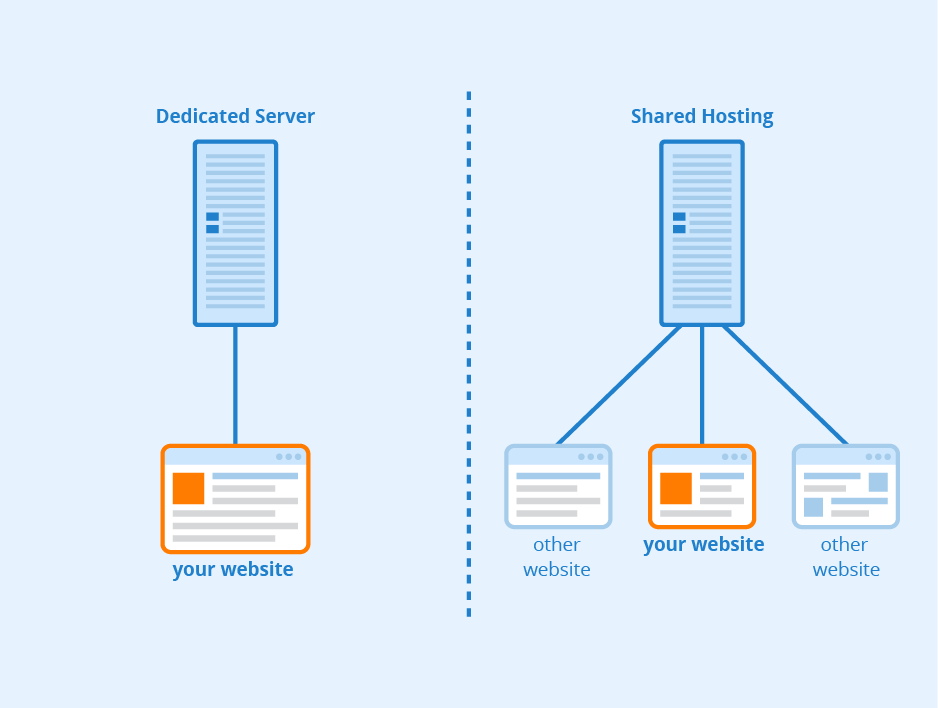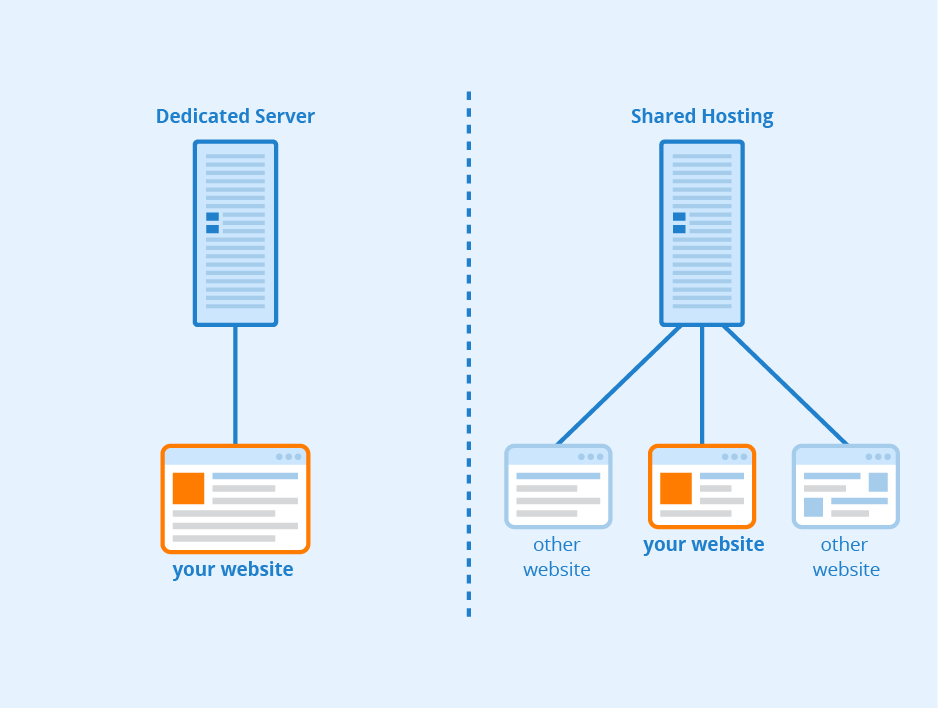Shared hosting involves multiple websites sharing resources on a single server, resulting in affordable prices but limited control. On the other hand, VPS hosting provides dedicated resources, giving you more control, scalability, and customization options. With VPS hosting, you have your own virtual server, allowing for better performance and security. While shared hosting is suitable for small websites with low to moderate traffic, VPS hosting is ideal for businesses or websites that require more power and flexibility.
Have you ever wondered about the difference between VPS and shared hosting? While both options are popular for hosting websites, they come with distinct features and benefits. Understanding their differences can help you make an informed decision for your hosting needs.
Shared hosting involves multiple websites sharing the same server and its resources. It is an affordable option for beginners or small websites with low traffic. On the other hand, VPS (Virtual Private Server) hosting provides a dedicated portion of a server, offering more control and resources, making it suitable for businesses with higher technical requirements. With VPS hosting, you have greater flexibility and scalability to handle increased traffic and customize your server settings.

The Difference Between VPS and Shared Hosting
When it comes to hosting your website, there are several options available, each with its own advantages and disadvantages. Two popular choices are VPS (Virtual Private Server) hosting and shared hosting. While both options allow you to host your website on the internet, there are key differences between the two that can affect your website’s performance, security, and scalability.
Shared hosting is a type of hosting where multiple websites share the resources of a single server. This means that all the websites hosted on that server will share the same CPU, RAM, and storage. Shared hosting is often the most affordable option, making it ideal for small websites or startups with limited budgets. It is also a good option for those who don’t have the technical knowledge or resources to manage their own server.
Key Takeaways
- VPS hosting is like having your own virtual server, while shared hosting means sharing resources with other websites.
- VPS hosting offers more control and customization options compared to shared hosting.
- Shared hosting is cheaper and easier to set up, while VPS hosting is more expensive and requires technical knowledge.
- Shared hosting is suitable for small websites with low traffic, while VPS hosting is better for high-traffic websites or businesses with specific needs.
- In shared hosting, server performance can be affected by other websites, while VPS hosting provides dedicated resources for better performance.
When it comes to hosting your website, there are two main options: VPS (Virtual Private Server) and shared hosting. VPS hosting provides a dedicated portion of a server with its own resources, giving you more control and better performance. On the other hand, shared hosting means your website shares server resources with many other websites, resulting in lower cost but potentially slower speeds and less control.
VPS hosting is like having your own private space in a building, while shared hosting is like sharing a small room with many people. With VPS, you have more customization options, higher security, and better scalability. Shared hosting is more budget-friendly and suitable for small websites with low traffic. So, if you want more control and performance, choose VPS hosting, but if you’re on a budget and don’t need advanced features, shared hosting is a good option.

